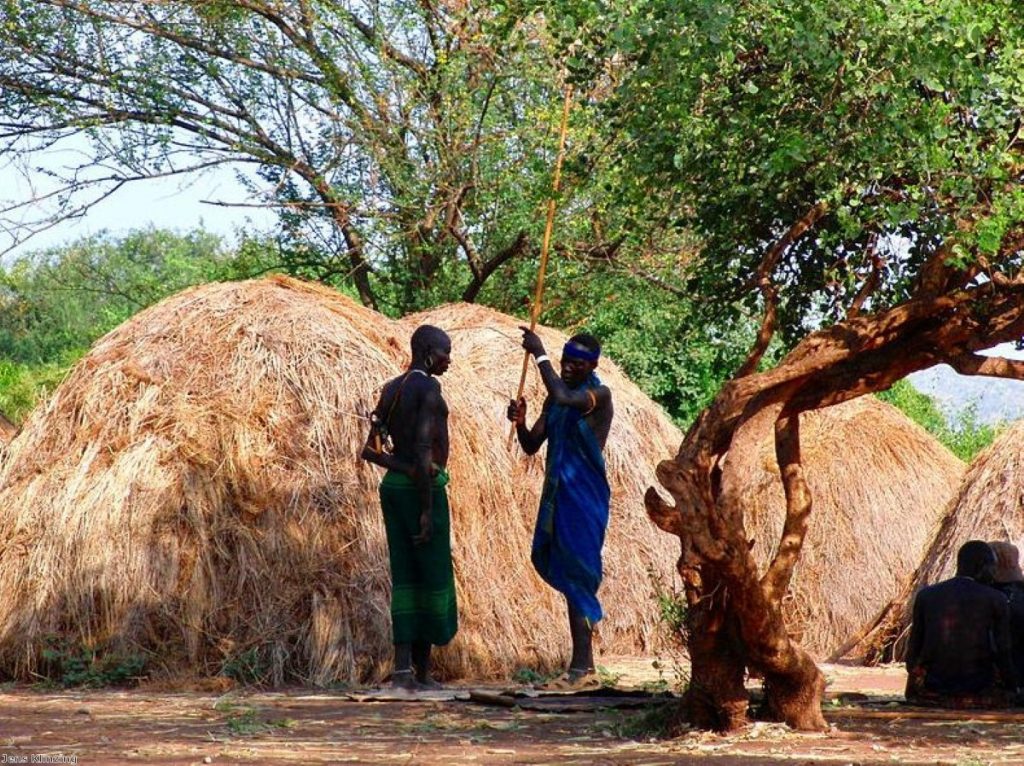Comment: You’re helping pay for torture
By Stephen Corry
British imperialism was responsible for the destruction of more tribal peoples than almost any other force. In some places, its colonial invasions left no survivors; conducting a systematic campaign against indigenous communities worldwide, the British government was complicit in the death of millions of tribespeople.
By portraying the societies it sought to subjugate as backward and primitive, the colonial endeavour subjected tribal peoples to genocidal violence, slavery and racism in order to steal their lands, resources and labour. All these crimes were committed in the name of 'progress' and 'civilization'.
There's little point in calling for retroactive apologies for this, though, because it's not confined to the past. British-sponsored abuse of tribal peoples' rights continues to the present day. And the government refuses to enact the one piece of legislation that might help prevent the annihilation of tribes worldwide – International Labour Organization Convention 169 on the Rights of Indigenous and Tribal Peoples (ILO 169).


Knowing this shameful history, it was with cautious optimism that Survival International, the global movement for tribal peoples' rights, greeted the formation of the coalition government in 2010. In their pre-election policy paper, Our Natural Heritage, the Liberal Democrat party pledged to ratify ILO 169. For the first time, tribal people and their supporters were hopeful that the law would make its way through parliament.
This was without counting on the officiousness of civil servants in the Foreign and Commonwealth Office, who argue that the convention is not applicable to the UK – a country with no tribal citizens – because it cannot be applied extra-territorially. Such a technicality did not stop either the Netherlands or Spain from ratifying – both countries recognize the importance of signing the law to send a strong message of support for tribal and indigenous peoples to the international community. Nor did it prevent the European parliament calling on its member states to follow the Netherlands' example.
Britain contributes financially to many projects which impact upon tribal people, via institutions such as the World Bank and the European Union, and bilaterally through the Department for International Development. Ratifying ILO 169 would help ensure that government upholds the human rights of tribal peoples. ILO 169 is also a yardstick by which to measure the conduct (or rather misconduct) of British companies – and indeed government departments – operating abroad.
If anyone should doubt the importance of UK ratification, they could look no further than Ethiopia, a repressive, violent and dictatorial de facto one-party regime, to which the Department for International Development donates more aid than any other country. Ethiopia is waging a war of intimidation and abuse against its indigenous peoples, for which it has drawn vocal criticism not just from Survival International but from other prominent human rights organizations, including Human Rights Watch.
Ethiopia's tribes have lived independent of state intervention until recently, developing ways of?life that are largely self-sufficient and extraordinarily diverse. They have depended on and managed their lands for centuries. But in the eyes of the Ethiopian government, the tribespeople are an anachronism; it is destroying their lives and livelihoods to make way for vast plantations of monocrops for export to wealthy countries, including Saudi Arabia and Italy.
Torture, beatings, and arbitrary arrests are commonplace for inhabitants of the Omo Valley region (with whom Survival works), as the government seeks to rid the fertile land of its first peoples. Any resistance is met with a vicious military crackdown. Tribespeople are 'relocated' (a more palatable euphemism for 'forcibly evicted') to 'resettlement' camps, where once independent communities are reduced to relying on occasional handouts and food parcels. And yet, DFID claims to be "accelerat[ing] Ethiopia's graduation from aid dependency" and "building the resilience of the very poorest by reducing food insecurity and improving livelihoods". It is an evident contradiction.
In correspondence with Survival, DFID maintains that no British money is being used by Ethiopia to violate tribal peoples' rights. It is impossible, however, for DFID to guarantee this, given that one of its primary financial contributions – the Promotion of Basic Services (PBS) programme – is paid into a regional budget, over which DFID has no control. Repeated requests for clarification have been ignored.
Addressing the Ford Foundation on September 22nd, international development secretary Justine Greening outlined DFID's plans to tackle droughts in East Africa, which "ruin harvests, threaten lives and destroy livelihoods". It is a cruel irony that, where the Omo tribes are concerned, their own government is guilty of wrecking harvests, lives and livelihoods.
As one of Ethiopia's most important donors, and a key member in the Development Assistance Group, whose constituent nations bolster the country's budget to the tune of billions of dollars, Britain is in a key position to effect change. Ratifying ILO 169 would go some way to ensuring taxpayers' money was not used to continue funding the annihilation of tribal peoples worldwide.
If Britain showed any commitment to tribal peoples' rights, it would abide by the principles of ILO 169, and ensure donor countries did the same. No amount of drought-resistant maize will stem the tide of famine that threatens to wash through Ethiopia's Omo Valley.
Stephen Corry is the director-general of Survival International, the global movement for tribal peoples' rights
The opinions in Politics.co.uk's Comment and Analysis section are those of the author and are no reflection of the views of the website or its owners.












